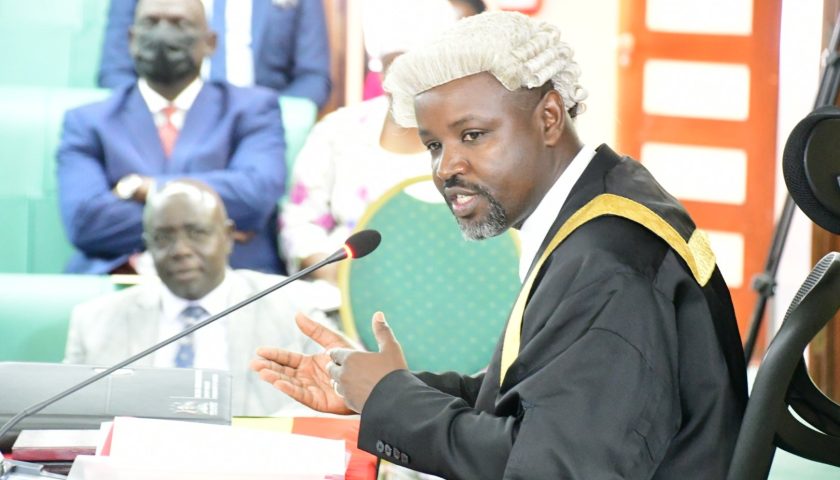
The Deputy Speaker of Parliament, Thomas Tayebwa, has asked the Education Ministry to explain reports surrounding several expired programs in different universities in the country.
Tayebwa issued the directive during the plenary sitting on Tuesday in response to the growing public outcry towards news concerning expired courses.
“The media is awash with stories on universities teaching what is being termed as “Expired Courses” and there is a very big concern in the country. I’ve received very many messages from parents as well as student leaders across the country, wondering what’s the fate of those attending to or have already done these expired courses,” Tayebwa said.
He said after consulting most of the stakeholders from National Council for Higher Education(NCHE) to the Ministry of Education and Sports, to Universities, it is clear this issue needs to be given serious attention.
He pinned the Ministry of Education to present to the house a detailed statement on Wednesday enlightening the issue and what they propose to do for the affected parties.
“It’s therefore critical that ministry of education brings a detailed statement on this issue tomorrow. The country must be updated about the situation because some of the information I got from a very critical stakeholder was that the original statement on expiry of courses is a fake one. So we need clear communication and the government’s stand to avert this situation,” he said.
In addition, he said he wants government to reassure Ugandans that indeed those who are educated, their degrees and courses are okay, and if they are not okay, what should be done to avert the issue.
“What you going to do about it? How do we make a declaration as a country that our courses/ degrees are expired? It’s so scary so it needs to be handled seriously,” the Deputy Speaker challenged.
According to a statement that made rounds on social media on Monday, it is required that the National Council for Higher Education does regular re-assessment and review of programs every five years for masters, bachelors, and diplomas, and every ten years for PhDs.
“Expiry of accreditation means that the program needs re-assessment to establish whether the key aspects upon which accreditation was granted are still in place,” the statement posted on NCHE’s website on May 22 reads in part.
It added that the re-assessment process evaluates various factors, including the program’s relevance to the market and the nation, compliance with minimum standards, the quality of graduates, and adherence to the program’s design and content. It is important to note that this re-accreditation procedure adheres to both national and internationally accepted standards.
